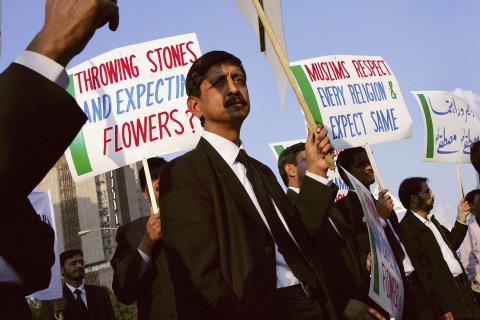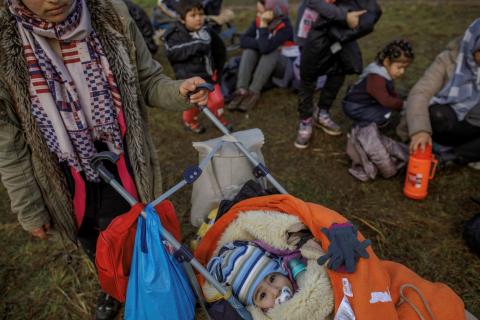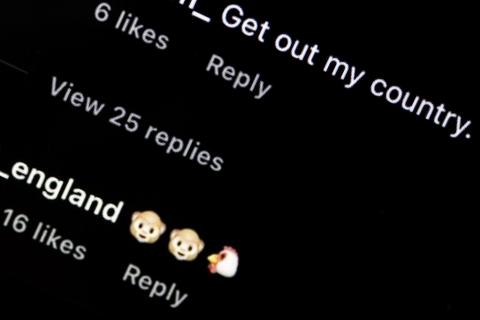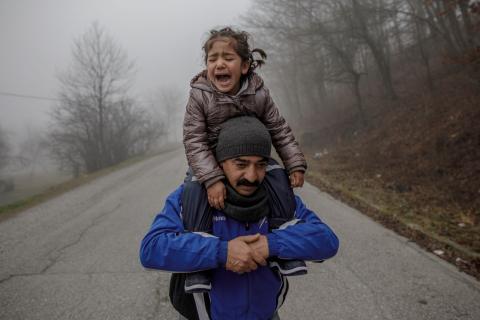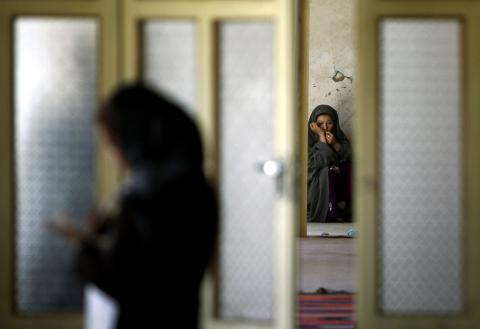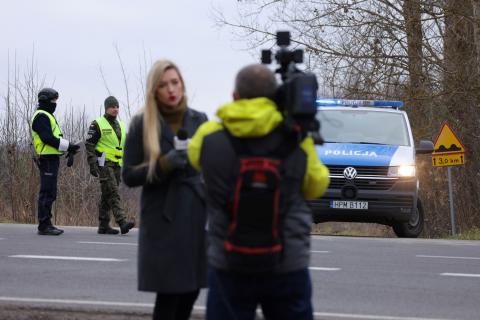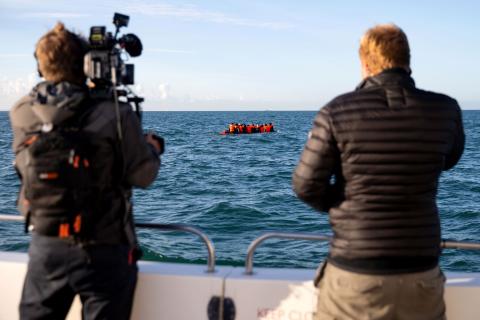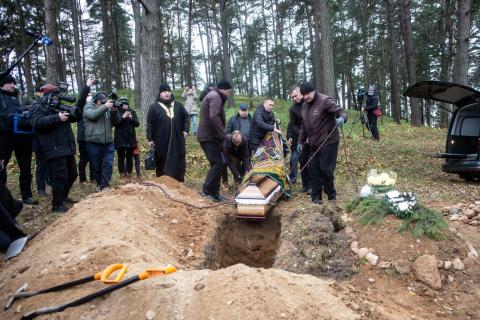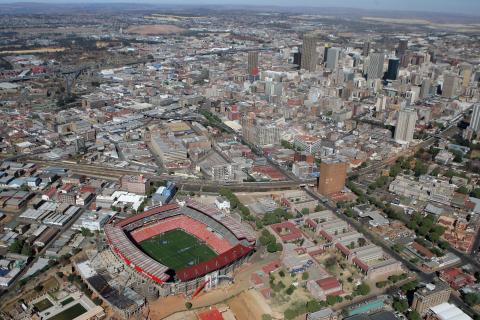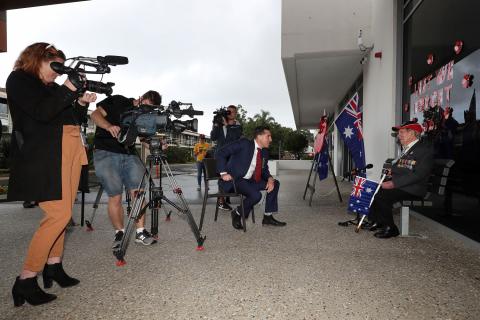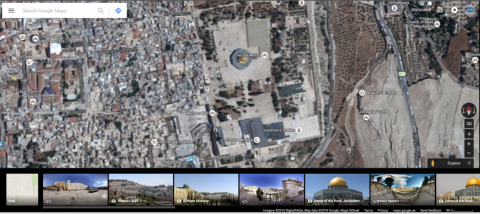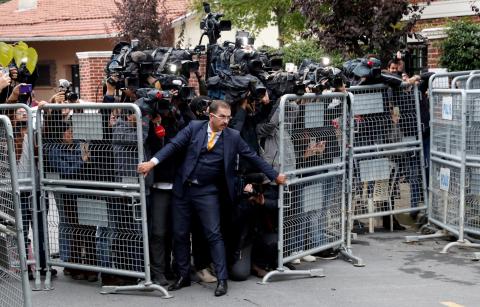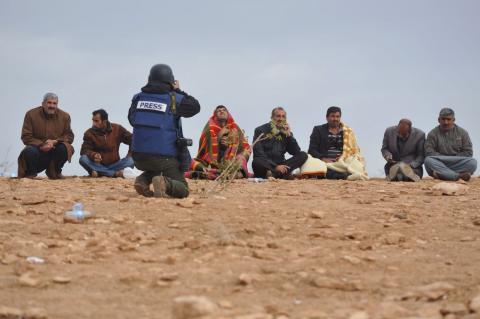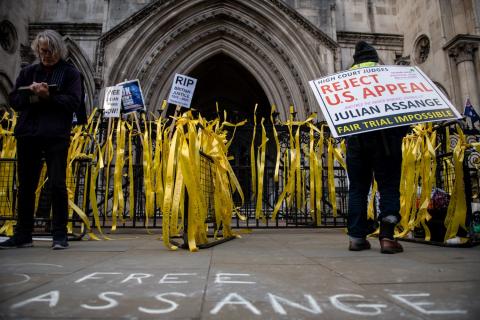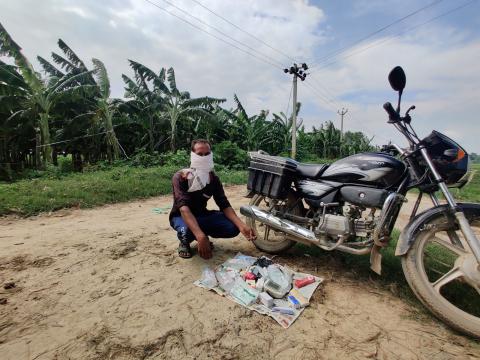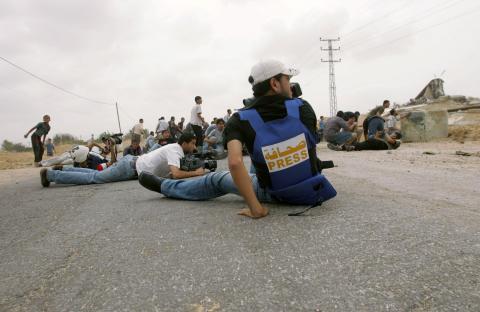Al Jazeera Journalism Review
How to avoid stirring up hate through your reporting
In part two of our series on how the media can propagate hate speech, we look at ways that journalists can ensure their work is balanced and objective, to avoid this.

The media must stop obsessing about ‘economic migrants’
The use of the term ‘economic migrants’ to describe desperate people trying to find a better life for themselves and their families conceals the reality of the brutality they face at Europe’s borders.

The problem with hate speech: How the media has fuelled its rise
Across the world, media organisations are guilty of misrepresenting the stories of refugees and other vulnerable minorities, stirring up panic and outrage within their respective countries. We look at some examples.

‘Violence and degradation’ – covering refugee stories on the doorstep of the EU
REPORTER’S NOTEBOOK: From changing the wet clothes of babies who have just arrived across the Aegean Sea to dodging police to interview vulnerable people who have poisoned themselves to avoid deportation - life as an aid-worker-turned-journalist in Eastern Europe.

‘It was a black day for all women journalists’ - supporting our Afghan sisters
THE LONG READ: How women journalists in India are coming together in solidarity with female reporters and media workers in Afghanistan following the Taliban takeover.

Planning and pitching refugee stories
In part three of our series on covering refugee stories, we look at best practice when it comes to planning and pitching to editors.

Life as a journalist on a US ‘kill list’
The US continues to shroud policies for the ‘War on Terror’ behind a veil of secrecy. This undermines democracy and a free press, and means no justice for one American journalist who claims he has been targeted for assassination on five separate occasions, nor for countless civilian casualties of US drone attacks.
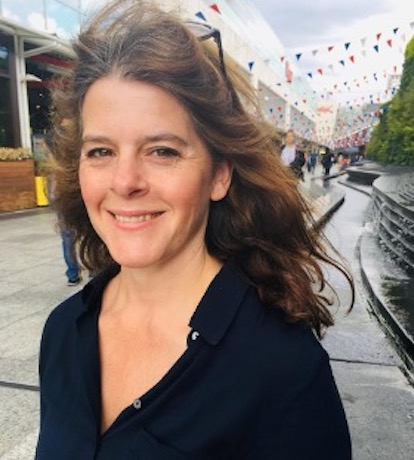
Why language matters when we report refugee stories
As tragedy strikes in the English Channel and the refugee crisis mounts at the Polish border, we examine why it is so important to use the correct language when covering refugee stories. Part two of our series.

How to cover refugee stories ethically
As Poland grapples with a migrant and refugee crisis at its borders, we examine best practice for journalists covering refugee stories. Part one of our series.

Reporter’s Notebook – memoirs of an illegal journalist in South Africa
From working shifts in a casino to interviewing a farmer mauled by a tiger - life as a struggling Zimbabwean reporter.

No, you are NOT the story
A writer reflects on the absurdity - and naivety - of journalists who place themselves at the centre of the stories they cover.
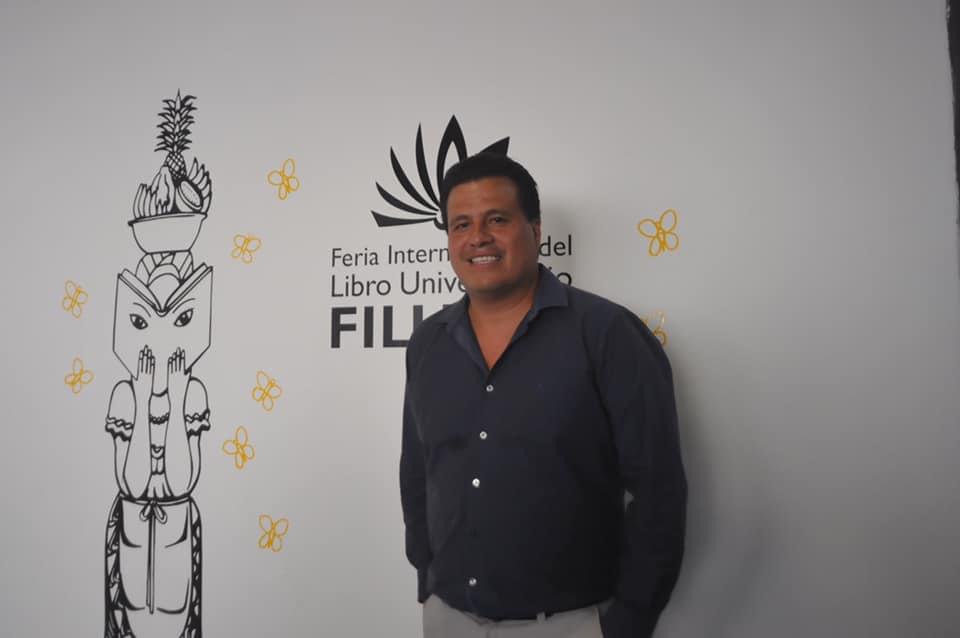
Verifying video - how to spot the fakes
It's often seemingly impossible to tell what's fake and what's not on social media. We look at the tools journalists can use to verify video sourced online.
How can you spot fake videos from hate groups to terrorist organisations on social media? Is it even possible? What tools can you use to verify the authenticity of these videos?

Is slow journalism the cure for fast-food thinking?
ANALYSIS: Journalists require time and space to provide the depth readers need to make sense of an endless stream of instant news.

It’s time to put an end to ‘parachute’ journalism
While global media organisations continue to fly in their own correspondents, relying on local journalists only for translation and ‘fixing’, the world will never get to know the real stories happening in the Global South.
Digital Sherlocks: Open-source investigation and news verification during wartime
THE LONG READ: From proving the existence of a seven-year-old girl in Syria to fact-checking locations of aerial bombings, how do you verify ‘open-source’ information in a war zone?

Julian Assange and Wikileaks are no model for responsible journalism
Punishing journalists who publish leaked information is an assault on democracy, but journalists still need to handle such information with care and integrity.
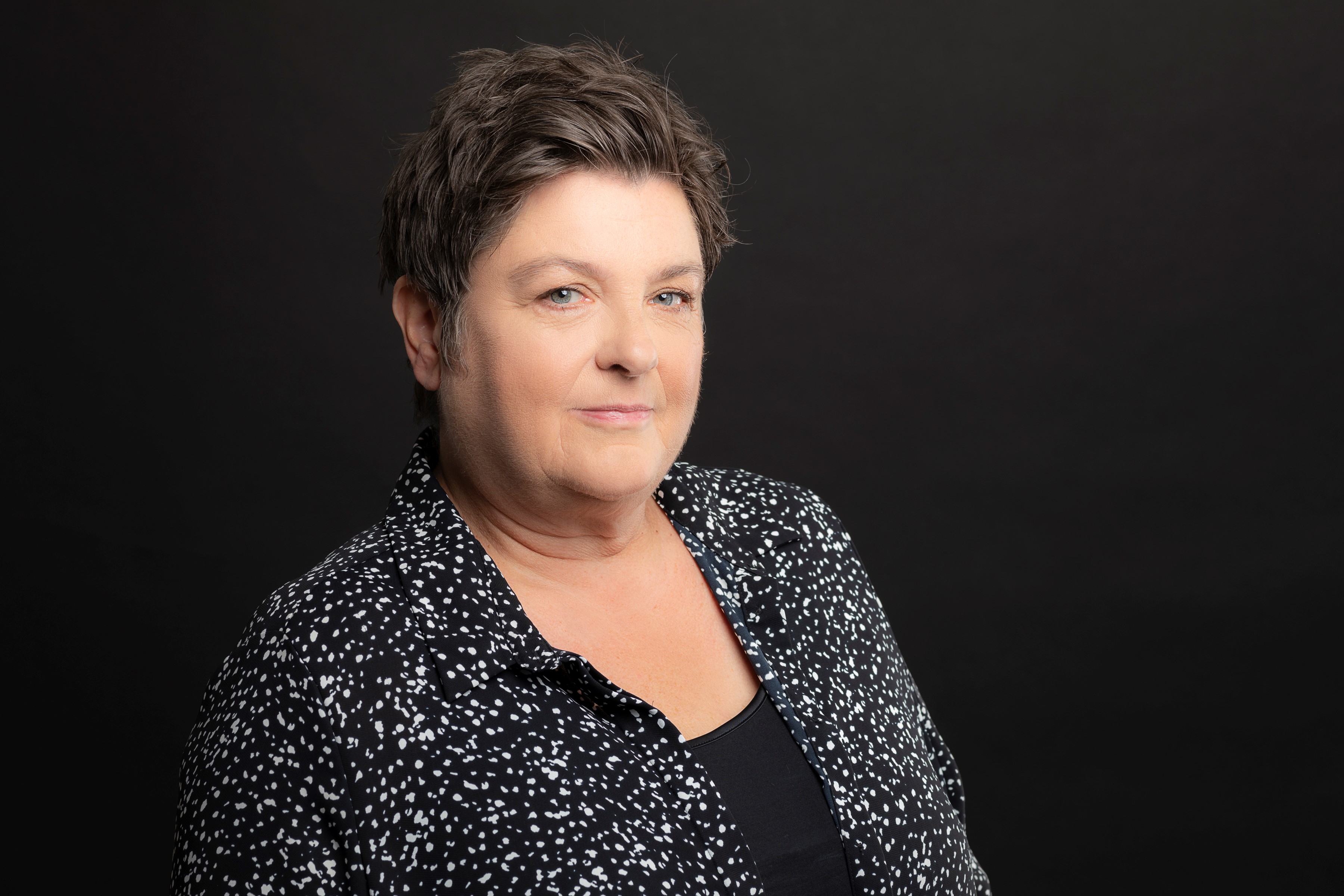
A wall of silence - investigating ‘quacks’ in India
REPORTER'S NOTEBOOK: ‘Quacks’ - illegal, non-registered healers - are a subject worthy of scrutiny by the media in India. But what do you do when the communities they operate in don’t want you to talk about it?

When journalists are blind to their privilege, the ‘true’ story may not be told
It took me years to see how my privilege would influence the outcome of interviews with minority Hindus in Pakistan. This ‘positionality’ is something journalists should pay closer heed to.
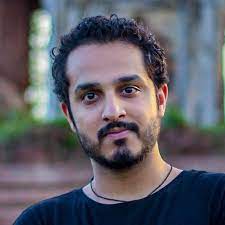
Palestine underground: A new face for local radio
THE LONG READ: How Palestine’s Radio Alhara is taking a grassroots approach to shaping a new landscape for protest, culture and local journalism online.

'They called me a traitor' - tales of a local freelance journalist in Yemen
Very few international journalists are currently based in Yemen because it is simply too dangerous to go there. Local - often freelance - reporters have continued to tell the stories of the human suffering there, however, and are facing greater dangers from militias than ever before. Our writer explains how he had to change the way he did his job, just to survive.

‘I became a journalist because we need to be heard’ - telling the stories of Palestine
THE LONG READ: Many journalists in Palestine only entered the profession through a need to make their suffering known to the world. So what does it take to tell stories of tragedy and personal loss to which you yourself are deeply connected while maintaining objectivity?
